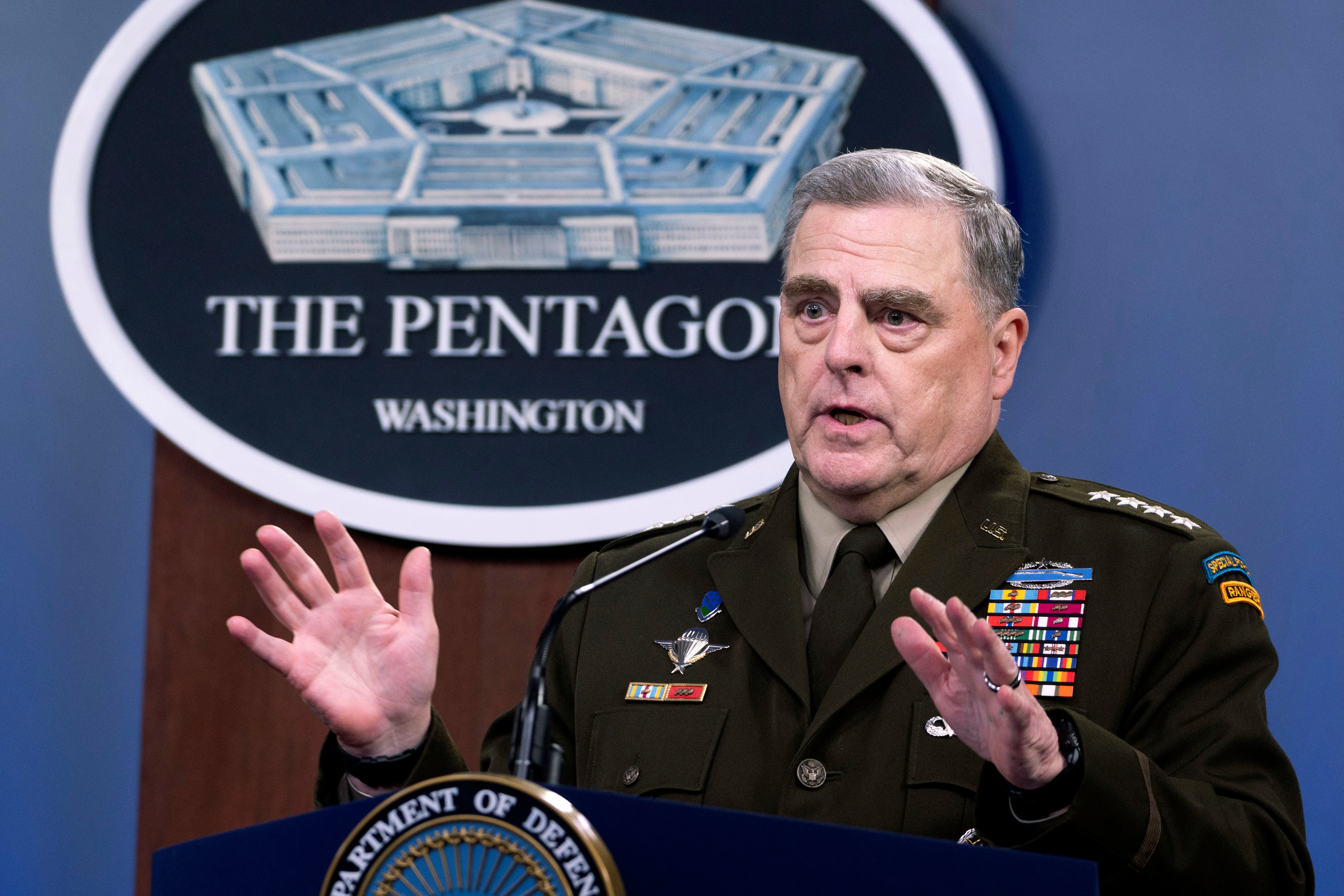Gen. Milley says Taliban appear to have 'strategic momentum'
The chairman of the Joint Chiefs of Staff says the Taliban appear to have “strategic momentum” in the fight for control of Afghanistan

Your support helps us to tell the story
From reproductive rights to climate change to Big Tech, The Independent is on the ground when the story is developing. Whether it's investigating the financials of Elon Musk's pro-Trump PAC or producing our latest documentary, 'The A Word', which shines a light on the American women fighting for reproductive rights, we know how important it is to parse out the facts from the messaging.
At such a critical moment in US history, we need reporters on the ground. Your donation allows us to keep sending journalists to speak to both sides of the story.
The Independent is trusted by Americans across the entire political spectrum. And unlike many other quality news outlets, we choose not to lock Americans out of our reporting and analysis with paywalls. We believe quality journalism should be available to everyone, paid for by those who can afford it.
Your support makes all the difference.The Taliban appear to have “strategic momentum” in the fight for control of Afghanistan as they put increasing pressure on key cities, setting the stage for a decisive period in coming weeks as American forces complete their withdrawal, the top U.S. military officer said Wednesday.
“This is going to be a test now of the will and leadership of the Afghan people — the Afghan security forces and the government of Afghanistan,” Gen. Mark Milley, chairman of the Joint Chiefs of Staff told a Pentagon press conference.
The Pentagon says the U.S. withdrawal is 95% finished and will be completed by Aug. 31. And while the Biden administration has vowed to continue financial assistance and logistical support for Afghan forces after August, Defense Secretary Lloyd Austin said the focus of U.S. military efforts there will be countering terrorist threats, not the Taliban.
Speaking alongside Milley, Austin said the U.S. will “keep an eye on” al-Qaida, the extremist network whose use of Afghanistan as a haven for planning the 9/11 attacks on the United States was the reason U.S. forces invaded Afghanistan in 2001.
“Our major focus going forward is to make sure that violence, terrorism, cannot be exported from Afghanistan to our homeland, and so we'll maintain the capability to be able to not only observe that but also address that if it does emerge,” Austin said, adding that the Taliban pledged in 2020 to not provide a sanctuary for al-Qaida in the future.
“We expect for them to meet that commitment. If they want legitimacy going forward, I think that's something they'll have to consider. That's one way to earn it, so we'll see what happens.” He reiterated his view that there is a “medium risk” of al-Qaida regaining within about two years of the U.S. departure the capability to launch attacks against the West.
“But, again, there are a number of things that could happen to speed that up a bit or slow it down,” he added.
Milley said the Taliban now control about half of the 419 district centers in Afghanistan, and while they have yet to capture any of the country's 34 provincial capitals, they are pressuring about half of them. As the Taliban seize more territory, the Afghan security forces are consolidating their positions to protect key population centers, including Kabul, he said.
“A significant amount of territory has been seized over the course of six, eight, 10 months by the Taliban, so momentum appears to be — strategic momentum appears to be — sort of with the Taliban,” Milley said.
Milley said that while the Taliban are attempting to create the impression that their victory over the U.S.-backed Kabul government is inevitable, he believes the Afghan military and police have the training and equipment to prevail. He said he would not rule out a negotiated political settlement with the Taliban, nor would he exclude “a complete Taliban takeover.”
“I don't think the end game is yet written,” he said.
Subscribe to Independent Premium to bookmark this article
Want to bookmark your favourite articles and stories to read or reference later? Start your Independent Premium subscription today.